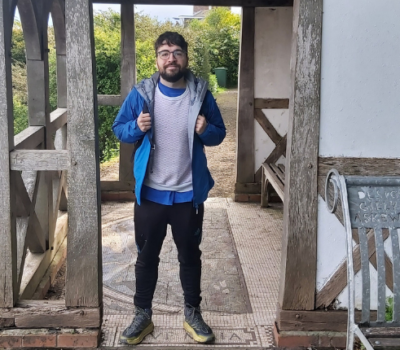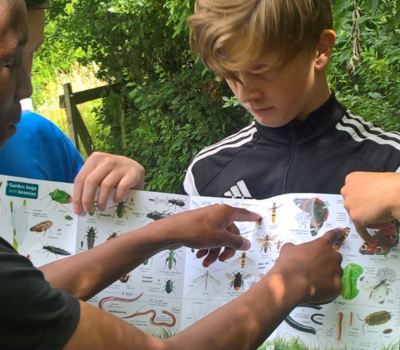Poverty Proofing taps into the power of pupils’ voices
Deputy Head Teacher Chris Wardle invited our Schools team to St George’s High School in Blackpool to Poverty Proof the School Day and was struck by how easily disadvantaged pupils were being unintentionally discriminated against by routine practices.
I was once a Free School Meals boy, growing up in Blackpool. I distinctly remember a clothing grant for which we were so grateful; it meant that we could shop at Rawcliffe’s; a posh clothing shop. Was it posh? No it wasn’t but it was a store that many of my friends bought their stuff from, and to me that was all that counted, to be the same as my friends.
I also remember a FSM queue at lunch at school. I asked my mum if I could go onto packed lunches. I didn’t like the segregation. I stayed on FSM, we couldn’t afford the packed lunches. I remember school trips, I didn’t go on one, not even the cheap one to the Lake District; it was out of our reach.
I understand what it’s like to be poor.
Poor mental health
I’ve worked as a teacher in Blackpool secondary schools for 18 years, eight of those as a senior leader.
Often I’ve dealt with children who are at significant risk of physical, emotional, mental or sexual abuse. More often, these children are from an impoverished background. Of these types of abuse, poor mental health is by far the issue that I have come across the most.
In September 2018, I was appointed as Deputy Head of St George’s High School in Blackpool and seconded as Head of Achievement across the Cidari Trust. Graham Warnock, Head of St George’s introduced me to Children North East’s Poverty Proofing programme.
Making the school day more equal
I researched Poverty Proofing and instantly got what they were about; it was about making the school day more equal for those who were impoverished. It sought to redress the balance that unbeknown to schools, through policy and practice were disadvantaging the disadvantaged.
Not for a second am I suggesting that any teacher or school leader would do such a thing knowingly. I am suggesting that policy and procedure may make life difficult for those who are poor unintentionally.
How Poverty Proofing works
We had our school Poverty Proofed by Luke Bramhall, who trained 20 of our year 10 pupils to become lead researchers.
Poverty Proofing is a whole school audit where every child is asked questions around their school day. The questions range from food to behaviour systems. A sample of teaching and associate staff, governors and parents are also audited.
A report is produced and it’s here that you see the power of pupil voice and the ‘wood for the trees.’
We did something about it
An example of one issue raised was that FSM allocation only became live for lunchtime that day. FSM spend was not accepted at breakfast or break time. Why not? We allowed non-FSM children to spend their monies at all break times. It wasn’t that this was intentional from Leadership, we didn’t know.
It was raised, we did something about it. Now the allocation can be spent when the child wants to spend it.
Children North East through Poverty Proofing have impacted our school. We are now more aware and through the report, we are creating a short, medium and long term plan.
We want to ensure equality for all
Children as well as adults think about the way in which we do things in the future to ensure that we’re poverty proofing our school, not just in a snapshot of time but through constant reflective practice.























